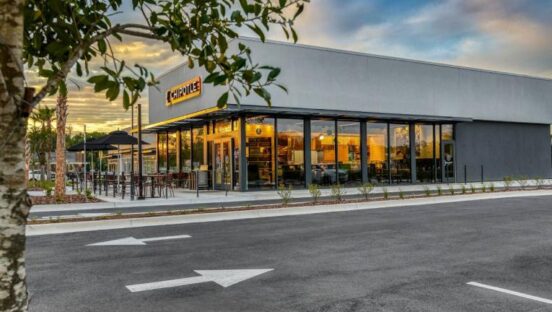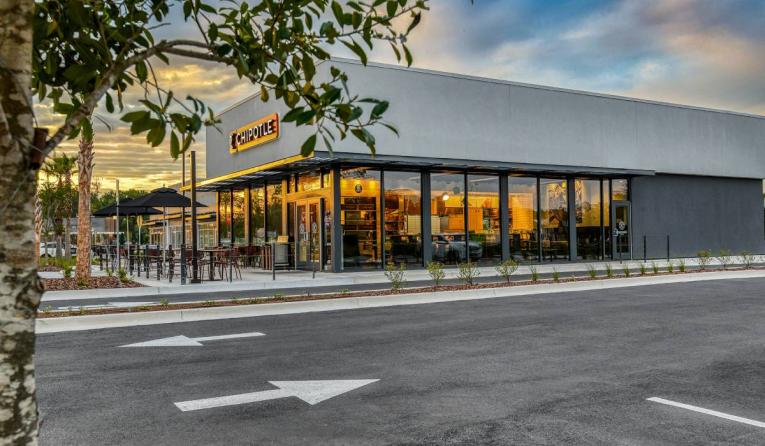


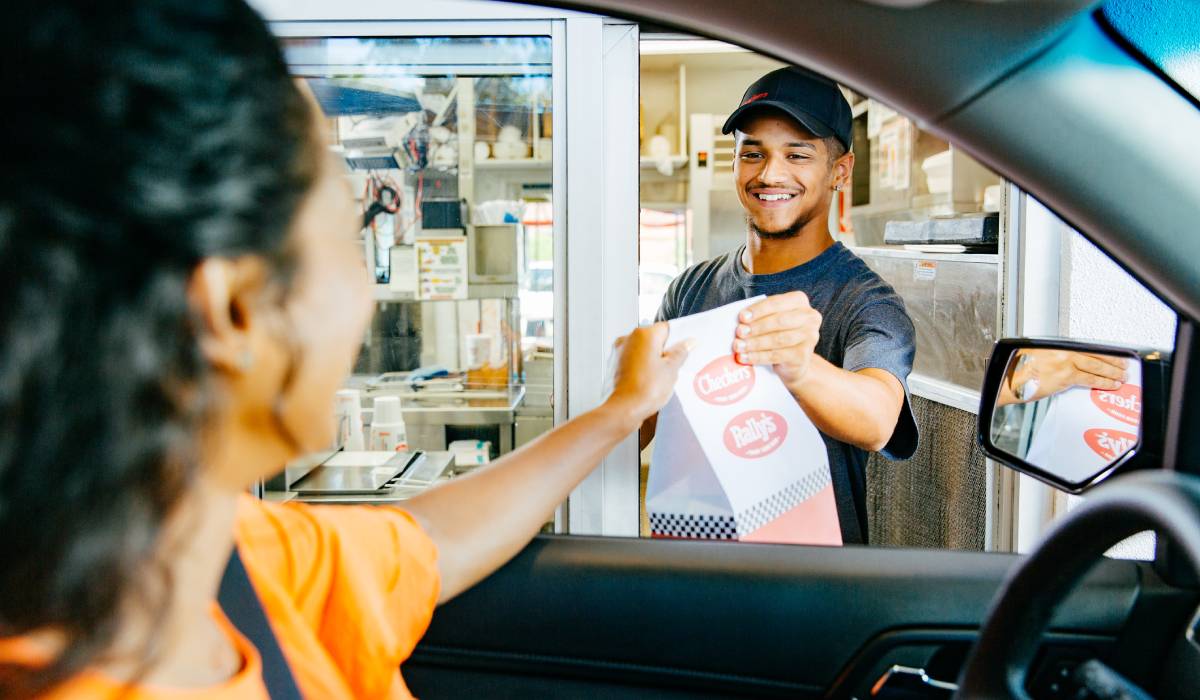



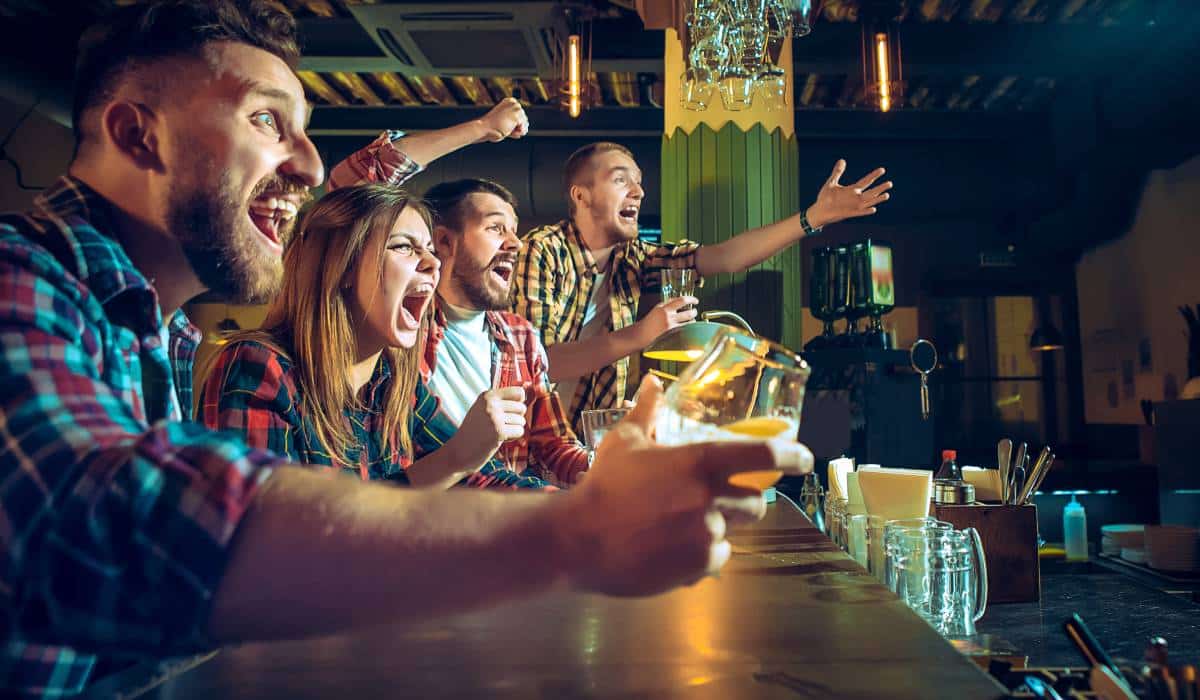


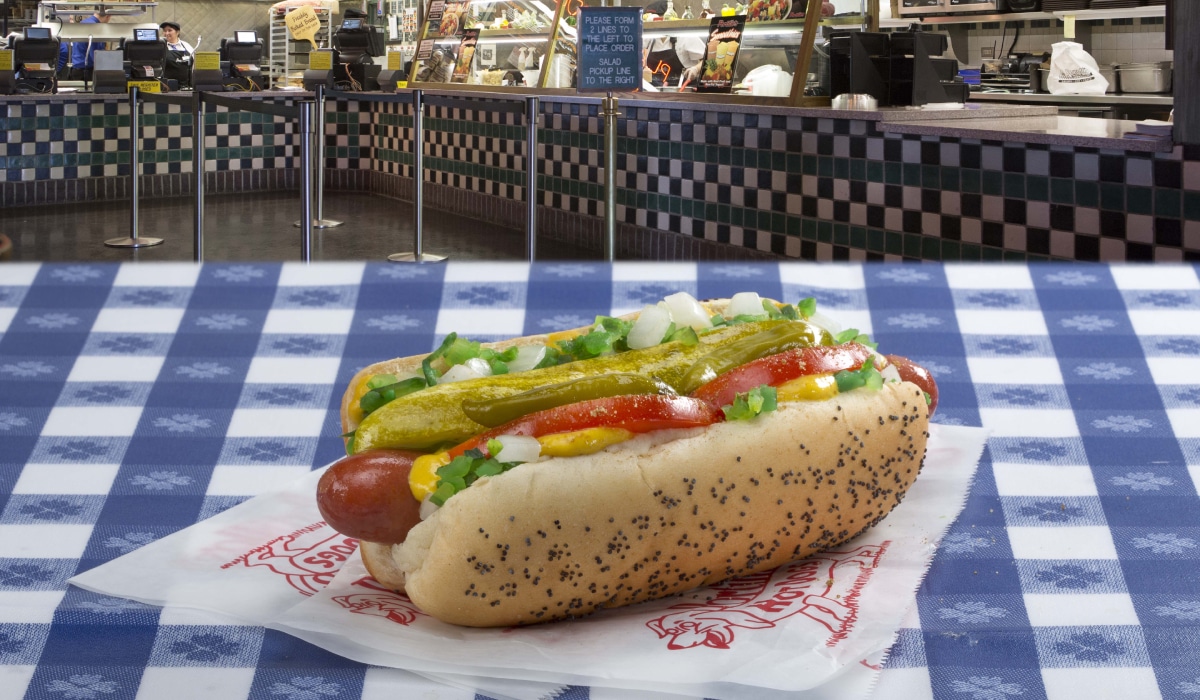

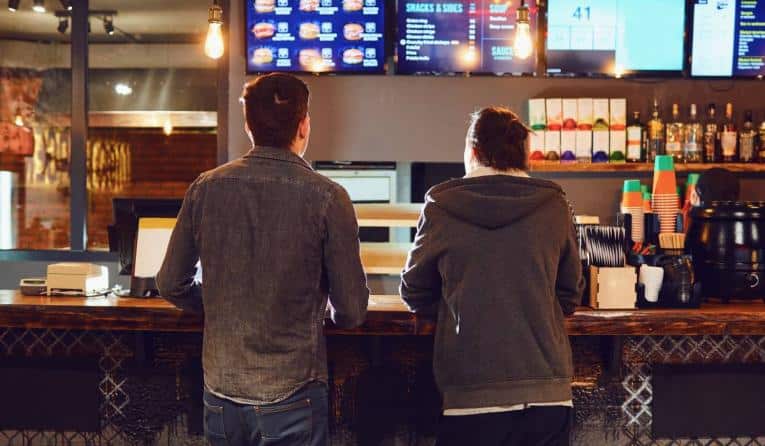


The value of lessons
As Black Bear Diner CEO Anita Adams shares in the below story, today’s restaurant “guests will reward brands that solve that value equation.” But what that proposition is has appreciated no shortage of twists in 2023. According to a recent trends report from BentoBox, diners spent about 7 percent more on restaurants this year, with an average check total of $22.46.
Brands approached the category from myriad angles, yet there’s a common point—value going forward won’t be as simple as the price point. The dollar-menu days of old are buried. So if prices are going to remain elevated, and perhaps climb higher, can restaurants close the circle through experience? Will it come via discovery? Digital deals? Local and dynamic value, or pricing that strategically adjusts by factors like peak, geography, or other trade-offs customers find fitting of the variable cost. At the end of the day, if everything is going to be more expensive, from retail to car payments, restaurants need to ask themselves whether or not what they delivered was truly worth what somebody paid for it.
In one case, per data from Circana, Chipotle introduced its Chicken al Pastor as an LTO in the spring of 2023. A quarter of the fast casual’s buyers actively participated during the offer period. The Chicken al Pastor not only engaged existing buyers, but also drove those buyers to spend more compared with their previous visits, Circana found. Priced slightly higher than the regular chicken offering, over two-thirds of people who bought the product considered it to be of very or fairly good value for the price, contributing to an increased party check. And nearly 80 percent of Chicken al Pastor buyers expressed an intention to visit Chipotle more frequently, showcasing the LTO’s influence in reshaping consumer behavior and fostering brand loyalty, Circana said. “Chipotle’s success with the Chicken al Pastor underscores the pivotal role that carefully crafted and strategically priced LTOs can play in driving customer engagement and market competitiveness,” the company noted.
However you approach it, “value” will define much of the restaurant landscape in 2024 whether it’s from a consumer-facing angle or a franchisee or operator deciding whether to grow. That runs every view from interest rates to construction costs to technology decisions.
In this look-ahead piece (check out QSR’s last one, on digital disruption, here), we asked a collection of operators and industry partners two questions: “What was your biggest lesson learned in 2023?” And, to get technical on one, buzzing topic, “What are your thoughts on AI and how it will affect the industry in 2024?”
Let’s dive in.
Nicole Miller Regan
CFO, 7 Brew
1. What was your biggest lesson learned in 2023?
The foundational elements of great hospitality are still of paramount importance. 7 Brew was founded on efficient and friendly service, and that has supported our massive growth over the last year. In fact, we had approximately 40 locations at the end of 2022 and now have just over 150 stands. Our guests range from early shift workers who need a black coffee to a student who needs and afternoon energy fix for a study session. Even though we serve a variety of guests, the demand for great, kind hospitality reigns supreme.
2. What are your thoughts on AI and how it will affect the industry in 2024?
AI certainly has a lot of promise in the hospitality space, but I think we have a way to go before we realize its full potential—and have the industry implement it in balance for the consumer. There are tools in use now that work for the industry well such as AI-powered voice ordering, for example. What I want to be sure of is that we take a strategic and judicious approach to the use and implementation of AI. It should never erode hospitality, or get in the way of friendly human-to-human interaction. That’s why we all got into this business in the first place. Technology should always be used to enhance experience.
Rasmus Soerensen
Chief Commercial Officer, American Seafoods
1. What was your biggest lesson learned in 2023?
Based on what we’ve heard from key seafood folks connected to the quick-service restaurant space, the biggest lesson we learned at American Seafoods is that catering to new trends with the millennial and multicultural consumer demographics dominated 2023.
Eventually, we expect to see this focus shift over to Gen Z, but for now, millennials and multicultural consumers have been generating demand for more healthy, sustainable and affordable food choices, and our customers have followed suit, driven by downstream demand like quick-service customers. As a result, we have seen an uptick in demand for our wild Alaska pollock products, which are healthy, sustainable and affordable potential sources. Data has shown that millennials and multicultural consumers have become more interested in these products recently. For example, data garnered from the GAPP and Ketchum, demonstrated that this year 5.3 million new millennials and 13.1 million new multicultural consumers entered the “fish eater” consumer profile with 2.6 million and 9.1 million, respectively, becoming familiar with Wild Alaska Pollock.
2. What are your thoughts on AI and how it will affect the industry in 2024?
We believe AI will be deployed on our vessels, but we believe AI is first going to play a bigger role in inventory management systems for the customers of our customers—the quick-service and convenience-store space. The Alaska Pollock industry— the industry behind the iconic McDonalds Filet-O-Fish for example—is not typically first when thinking of AI innovation, but the reality is we are constantly tweaking and revamping the technology on our vessels. Although we can expect some impacts in 2024, AI won’t cover off all the boxes, as no matter the innovation, we don’t believe that AI will be able to conduct the actual harvesting of sustainable, healthy and affordable Alaskan seafoods products that so many consumers enjoy at their favorite quick service and fast food establishment anytime soon.
Frances Allen
President and CEO, Checkers & Rally’s
1. What was your biggest lesson learned in 2023?
We have found that our AI technology actually enables our team members to provide a superior guest experience. The automated system allows our team to meaningfully interact with guests without consistent stressors and other pain points that can come along with working in our industry. Our people are the cornerstone of our business, and we find that by offloading one task from their plates, not only are they able to dedicate that time to a quality guest interaction at the window, but they find their jobs more enjoyable as well.
2. What are your thoughts on AI and how it will affect the industry in 2024?
We are proud to be the first large concept to utilize AI-based drive-thru voice ordering nationwide. Since launching in 2022, we have gone on to roll out the technology in nearly half of our company-operated and franchised stores.
The drive-thru is an intense, high-paced job, with employees often taking new orders while fulfilling and processing previous orders simultaneously. As we look to the year ahead, we believe AI will continue to work its way into the restaurant industry, touching various components to improve operational efficiency as well as the guest and employee experience.
At Checkers & Rally’s, we’ve already started to innovate AI at the drive-thru by adding Spanish language capabilities in some of our key markets to make our system more inclusive and accessible. The impact and consumer response thus far has been incredible. Looking to 2024, we’ll continue to explore further personalization and look forward to rolling out additional enhancements.
Christine Barone
CEO, Dutch Bros
1. What was your biggest lesson learned in 2023?
The importance of investing in people. Since joining Dutch Bros earlier this year, I’ve witnessed how people are truly the foundation of our business and a massive part of the company culture that has helped set us apart for more than 30 years.
Over the last year, we’ve made proactive investments in our people, increasing base wages and incentive compensation across different markets to demonstrate our ongoing commitment to recruiting, developing and retaining our people. Even further, we’ve promoted about 50 people to the position of operator over the last two years—employees who started as broistas and worked their way up while embodying our core values. Our rapid growth strategy is made possible by our hardworking employees and their ability to foster Dutch Bros’ company culture. As we continue to expand, we remain focused on opening great shops led by strong, home-grown leaders.
2. What are your thoughts on AI and how it will affect the industry in 2024?
AI will certainly impact the industry in 2024, with brands leveraging the technology in ways both customer-facing and operationally back-of-house. At Dutch Bros, we’re known for our interactive guest experiences rooted in our strong company culture and incredible broistas, and that will always be a priority. However, we do think there’s potential for the right balance between digital and human interactions. Currently, we’re working on advancing our Dutch Rewards app, moving from a broad-based giveback program to a more targeted approach where we are using consumer insights to drive behaviors that we expect will create more lasting value.
Matt Eisenacher
Chief Brand Officer, First Watch
1. What was your biggest lesson learned in 2023?
As many restaurant concepts shift to business models that put technology front and center, prioritizing the human element of hospitality has only become more critical. At First Watch, we are fortunate to operate with a “You First” mindset, a guiding principle in our approach to customer service that we’ve maintained since first opening our doors 40 years ago. As we’ve expanded to more than 500 restaurants across the country, this mindset of putting others before ourselves and just being kind has set us apart in a time when customers are seeking out warm and welcoming experiences when they choose to dine out.
2. What are your thoughts on AI and how it will affect the industry in 2024?
While we recognize that the use of AI is rapidly expanding within the restaurant industry and worth monitoring, for us, the human-to-human connection of hospitality remains a priority. Over the last year, even as we’ve experimented with AI for certain corporate functions like design and marketing, our focus lies first and foremost with the customer.
Tim McLaughlin
Chief Executive Officer and Co-Founder, GoTab
1. What was your biggest lesson learned in 2023?
If there’s one lesson learned from this past year, it’s that despite the focus on guest- and employee-centric experiences, the industry as a whole still takes a very top-down approach to operations. It’s a huge missed opportunity that keeps operators from addressing significant operational inefficiencies at a critical moment when they can’t afford to lose time and resources under tight margins. These inefficiencies take many forms, whether it’s the unproductive use of labor because an operator can’t accurately predict levels of demand or the extra time guests wait in between their second round of drinks because their busy server isn’t available to take their order.
For the hospitality industry to actually be hospitable and profitable, brands need to take a step back and reevaluate their operating models. Instead of putting all operational decisions upon the general manager and all customer choices on the server, brands must leverage technology to distribute decision-making across the board. For example, chefs working in the kitchen should be able to quickly 86 unavailable food items from the Kitchen Display System, without having to locate a manager to remove the item from the POS during a busy dinner rush. Guests should have the option to order more food or drinks from their mobile device or from a server, whenever they’d like. Not only will this reduce inefficiencies, but it will also dramatically improve the guest experience and in turn, drive loyalty and sales.
2. What are your thoughts on AI and how it will affect the industry in 2024?
As we enter 2024, I think we’ll see more hospitality brands both testing and implementing AI within their locations. As a technologist, I’d like to see the industry use AI everywhere there is an opportunity to make a guest’s experience easier or more enjoyable. That might come in the form of using AI to create more enticing menus or more targeted marketing offers based on customer data. From the operator’s perspective, it could be solutions that help reduce waste so that they can avoid painful price increases. At the same time, I believe we will see a lot of negative headlines surrounding the use of AI as brands continue to figure out exactly how and where it should be utilized for maximum efficiency. There’s a time and place for technology of this nature, and it’s not always necessary depending on the brand and their business model.
It is my hope that as AI becomes increasingly accessible and popular, brands continue to approach it with thoughtfulness, so they can properly leverage the technology to improve, not detract from, hospitality.
Joe Hand Jr.
President, Joe Hand Promotions
1. What was your biggest lesson learned in 2023?
To listen closer to our customers and understand their needs and priorities. This lesson has led to us focusing on offering a vast menu of programs and events in order to accommodate a larger breadth of customers. The offering has been widely received by bar owners, and can accommodate those who want to diversify their programming to entice more customers who are seeking live entertainment at out-of-home establishments.
2. What are your thoughts on AI and how it will affect the industry in 2024?
Every day businesses are identifying more efficiencies as a result of using AI, and as the technology becomes increasingly relevant in the business world, it’s essential for us to remain open to embracing it and how it can benefit our business. While the full potential of AI remains uncertain, we are always identifying ways to innovate and optimize operations in our business as well as in the way we advise our customers.
Noah Glass
Founder & CEO, Olo
1. What was your biggest lesson learned in 2023?
As the industry continues to lean into technology, 2023 demonstrated the need for hospitality above all else. This past year, restaurants were navigating ongoing challenges from labor shortages to inflation to rising commodity costs all while trying to stand out and gain share in one of the most competitive landscapes. 2023 proved that brands that prioritized hospitality both on- and off-premises will win in the long run. At Olo, we’re proud to be leading the way in delivering hospitality at scale for our 600-plus restaurant brands. Our three product suites, Order, Pay, and Engage, are purposefully designed to help restaurants streamline front- and back-of-house operations and do more with less, with a mission to make every guest feel like a regular—whether it’s their first or 100th visit.
A big part of this is personalizing guest experiences to generate brand loyalty. On average, 60 percent of restaurant revenue is driven by 20 percent of a restaurant’s guest base. Operators that successfully dial into these guests—the 20 percent that hold the most lifetime value for their brand—through tailored communications, offers and rewards will master guest loyalty, driving sales as a direct result of hospitality.
2. What are your thoughts on AI and how it will affect the industry in 2024?
AI will continue to touch all aspects of the restaurant industry as brands leverage technology to simplify tasks and drive operational efficiencies across the board. At Olo, we view AI as a means to enhance hospitality at scale, freeing up staff to focus on high-touch tasks and offloading more redundant tasks. Our unique size serving a portfolio of 600+ restaurant brands across 78,000 locations provides deep access to an abundance of valuable guest data that, with the help of AI, enables brands to deliver hyper-personalized experiences and make every guest feel like a regular.
For example, earlier this year, we incorporated generative AI in our Marketing product, giving busy marketers more time to focus on sending powerful, targeted content to their guests to increase recency, frequency and ultimately guest lifetime value. We also advanced our OrderReady AI machine-learning based solution that allows brands to provide more accurate quote times based on training and deploying models using historical order data.
Overall, we believe AI will be increasingly used as a tool to fast-track catered interactions and better guest experiences, relieving inefficient manual practices amid tight labor markets and heightened competition.
Christine Schindler
Cofounder and CEO, PathSpot
1. What was your biggest lesson learned in 2023?
Following an eventful few years navigating the COVID-19 pandemic, it’s clear consumers prioritize their personal health and wellness more now than ever. And while both parties may be doing their part on the surface with tactics like mobile order and contactless delivery, 2023 taught us there are still major gaps when it comes to health and safety within the restaurant industry. Unlike other areas of the business where technology is transforming the guest experience, the majority of back-of-house health and safety procedures remain manual, with employees writing expiration dates on ripped pieces of tape and scribbling temperatures down in physical logbooks.
There’s incredible whitespace and a dire need to digitize health and safety operations throughout the restaurant industry in order to mitigate risk, save on time and resources and create a culture of cleanliness. If there’s one lesson learned, it’s that with all this focus on technology in the restaurant space, the area that is arguably most important—food safety—still has a long way to go to reach its full potential.
2. What are your thoughts on AI and how it will affect the industry in 2024?
In 2024, the industry will continue to embrace AI as a means to streamline day-to-day interactions and operations. Perhaps most useful, it will expand across the back-of-house to include additional use cases and reduce reliance on outdated manual practices that are labor and resource intensive and oftentimes inaccurate.
From a health and safety perspective, PathSpot is currently leveraging AI and Machine Learning to detect contamination and hygiene patterns across a brands’ locations for immediate corrective change. When it comes to food safety, this is game changing for preventing an outbreak. For example, our AI functionality recognized a series of similar bacteria patterns forming a straight-line on the back of employees’ hands after handwashes at a multi-location enterprise brand. PathSpot’s unique algorithms and expert safety team were able to conclude that those consistent contamination lines were a direct result of hand straps connected to the back of the company’s handheld tablets. Armed with this information, the brand took quick action to make sure employees were now washing said tablet straps as part of standard operating procedure.
Ultimately, we believe predictive AI will play a significant role in furthering our mission to make the preventable spread of foodborne illness a thing of the past. As nation- and statewide regulations continue to change, AI will support employees along the way by communicating specific tasks as they relate to food and equipment management to mitigate risk and remain in line with the latest health and safety mandates. This will be a game changer when it comes to ensuring compliance, saving on labor, and reducing the chance of outbreaks throughout the industry.
Garrett Kern
VP of Strategy & Culinary, Portillo’s
1. What was your biggest lesson learned in 2023?
Our biggest takeaway from 2023 is that consumers’ definition of “value” has expanded.
The concept of value is no longer just about price. While the cost of a single menu item or a full ticket is still top-of-mind for guests, we see them approaching it more holistically. When customers choose to dine out—in a Portillo’s restaurant or via one of our other channels, like catering, drive-thru, or pickup—they’re assessing the price, the quality of the ingredients, quantity of food they’re getting, and the overall restaurant experience.
In the year ahead, we anticipate consumers will continue to be scrutinous with their dollar and look to spend their money at restaurants that offer the best overall value. Knowing that, we continue to focus on providing an amazing overall experience and focus on meeting guests’ expectations every time they come to Portillo’s.
2. What are your thoughts on AI and how it will affect the industry in 2024?
We see a number of restaurants experimenting with AI right now and expect that to continue into 2024. Our approach to any new technology is that we will only invest in systems that have an obvious benefit for our teams and our guests, without sacrificing the experience. While using AI and other tech advancements for low-level, back of house tasks is great and most likely easing inefficiencies for team members, consumers still enjoy the element of human interaction they get at restaurants without involving tech. This interaction is an important piece of the Portillo’s experience.
Bob Wright
Chief Executive Officer, Potbelly
1. What was your biggest lesson learned in 2023?
The biggest lesson we learned in 2023 was that consumers are ready to see the return of great customer service experiences and they are eager to be rewarded for being loyal brand fans. We saw interest in our free Potbelly Perks rewards program continue to grow in 2023. Similar to other restaurant loyalty programs, our goal with Potbelly Perks is to reward our customers, using data to drive traffic and create a more personalized experience for them. We offer Perks-only promotion activities, like digital-exclusive deals, like offering members a free Potbelly cookie on National Cookie Day, and our Underground Menu with sandwiches that are only available to order via the Potbelly app. Ultimately, the program creates a more customized, VIP-like experience, and we see consumers responding well to that. Additionally, customers expect their digital experiences to meet or exceed the expectations they have for traditional experiences. Food quality, friendly service, accuracy, and convenience are core to digital experiences as well. Our continued expansion of Potbelly Digital Kitchen (PDK) supports continued improvement in all those aspects of our customers’ digital experiences while making our shops more efficient for our associates as well. Especially as people become more selective with where they spend their money, we believe Perks is a simple way to foster a better connection to our brand and the digital aspect, which alerts members to timely and relevant deals, helping consumers to keep Potbelly front of mind when they’re looking for a delicious fast-casual restaurant option.
2. What are your thoughts on AI and how it will affect the industry in 2024?
We are keeping a close eye on the restaurants that emerged this year as some of the first adopters of AI technology. While we see some benefit from potential efficiencies, the technology is still new, and we plan to continue to evaluate any potential use cases that make sense for our brand.
Matthew Tucker
Head of Tock
1. What was your biggest lesson learned in 2023?
Consumer demand in the restaurant industry is back to pre-pandemic levels. To meet the demand, restaurants are innovating turnkey ways to engage new and loyal diners, and differentiate their business in a competitive landscape. Tock’s focus has been helping those restaurants unlock their potential through platform enhancements that enable our partners to launch personalized experiences that are scalable, compatible to sell alongside everyday reservations and authentic to their business.
2. What are your thoughts on AI and how it will affect the industry in 2024?
AI will—and already has—become a great discovery tool for guests to find the perfect restaurant, hotel and destination for any occasion. Given the choices we all have when traveling and going out, this will continue to become a huge opportunity for platforms like Tock to take advantage of; however, we see something much deeper and more valuable with AI for our own customers. We see it being a great tool to automatically optimize and configure availability based on a wider range of data so restaurants can maximize demand throughout the year. We’ve always believed that a restaurant’s book or availability should adapt across times, days of the week, seasons, etc. Imagine having a deeper knowledge of things like booking data at nearby places, hotel capacity, weather, and annual and seasonal trends so a business’s availability can react to information people never had access to before—all with the mission of fully maximizing availability and demand to help businesses run as efficiently as possible.
We also see great potential in AI supporting tighter security for our platform to lessen the risk of bot reservations and scammers. Interestingly, we’re combating bad actors that also use AI. As a technology platform focused on restaurants, that’s where it can be very helpful. That said, what makes an experience great at a restaurant is the personal connection—with your fellow guests, with the host, your server, the sommelier. Those interactions that make a night out truly special are things that cannot and should not be replicated by AI.
Peter Kellis
Founder and CEO of TRAY
1. What was your biggest lesson learned in 2023?
Hospitality is not dead. We’ve always known that service reigns supreme in hospitality when it comes to how technology providers work with operator partners. Restaurant brands succeed by providing high quality service and hospitality to their guests, and they rightfully deserve the same from their technology providers. We saw several instances in 2023 where tech providers perhaps didn’t listen to their customers, or appropriately address their concerns, causing massive headaches and eroding trust. These failures reinforced the fact that we must provide speedy, reliable and collaborative service to all clients no matter our offering. We must meet listen to our customers, hear their challenges and provide value-added answers and solutions to help provide that high-quality service and hospitality to their guests.
2. What are your thoughts on AI and how it will affect the industry in 2024?
Artificial intelligence was the topic of news headlines across all industries this year, and I know there is great promise when it comes to the use of AI in the restaurant industry specifically. (Worth noting, I earned a Masters at MIT in Artificial Intelligence.) There is still a lot to learn and fine tune when it comes to AI, so I want to caution operators to not be too dazzled by this burgeoning technology. AI is exciting and enticing, but we all should still be measured and strategic in our approach to its application.
In the back-of-house, AI-driven inventory management and demand forecasting can help reduce food waste and optimize supply chain logistics, and AI-powered surveillance systems can monitor food safety standards and hygiene protocols in real time. Other operational benefits to come from AI include predictive analytics, where restaurants will be better able to anticipate trends and optimize inventory, as well as sustainability where AI can optimize energy consumption and minimize food waste.
In the front-of-house, AI will grow increasingly adept at understanding individual guest preferences and delivering personalized experiences from menu recommendations to tailored promotions, helping restaurants forge deeper connections with their patrons. Additionally, machine learning is capable of organizing menu items in a way that incentivizes customers to order promoted items.
Lastly, AI-driven security systems will offer improved protection against theft and fraud as businesses continue to collect and house massive amounts of personal data.
These examples of what could lie ahead only scratch the surface of what AI is capable of doing for the restaurant industry, its operators and patrons. What’s most important is that we approach AI with a healthy understanding of what it can and cannot do, realize that AI is only as good as the data and platforms enable it to be, and remain flexible and agile knowing change is ever constant.
Anita Adams
CEO, Black Bear Diner
1. What was your biggest lesson learned in 2023?
This past year proved to be a challenge for consumers in the volatile economic environment. This further highlighted the importance of delivering on our brand promise and exceeding our guest expectation. We also continue to invest in hospitality, quality, and abundance and not engineer out any aspect of our full-service experience. We continue to believe that guests will reward brands that solve that value equation. We need to continue to implement best practices and invest in technology that target efficiencies and offset inflation.
2. What are your thoughts on AI and how it will affect the industry in 2024?
This is a highly intriguing area especially as it relates to certain back office and support functions including supply chain and construction. Look to see some key players emerge in this space and provide AI services to the restaurant industry.

